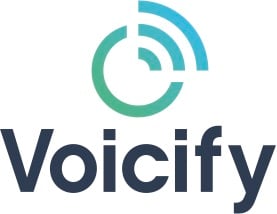





If you have a strong accent, chances are that you have particularly difficult conversations with Voice devices.
You're not alone either. Alexa, Siri, and Google Assistant are notoriously hard of hearing when it comes to any kind of speech variance, like stutters or mild slurring. In fact, The Washington Post found that Google Assistant is 30% less likely to understand non-American accents, while Alexa can't quite grasp the U.S. Midwestern accent—let alone Scottish, Jamaican, or Australian.
The root of all this conversational trouble boils down to a severe lack of data.
Most speech recognition technology is built, designed, and tested solely by typically Western English-speakers. As an obvious result, it won't work well for people who don't fit into that very narrow pool. It's a troubling blend of bias and short-sightedness.
Spokespeople from Amazon Alexa and Google Assistant have promised to improve their voice recognition as more people with accents speak to their virtual assistants. Other companies, however, are taking a much more proactive approach to closing the accent gap.
Speechmatics, a UK tech firm that specializes in enterprise speech recognition software, operates under the philosophy that you shouldn't have to adjust the way you speak so computers can understand you. On the contrary, computers should be designed to understand everyone.
From American English to South African English, the Speechmatics team has dedicated years to developing a Global English language pack so speech recognition systems around the world can support all major English accents.
“We realized that we [needed] to come up with what we like to call ‘one model to rule them all’ — an accent-agnostic language pack that is just as accurate at transcribing [an] Australian accent as it is with Scottish,” Speechmatics CEO Benedikt von Thüngen told VentureBeat.
Trained on thousands of hours of spoken data from over 40 countries, this comprehensive language pack ensures that if you're an American that picked up a local UK accent while working abroad, your Voice device will still understand you when you get home.
This accent-specific language pack has many uses beyond the Voice device on your kitchen counter. Speechmatic's AI-powered speech technology is making it's way into dozens of industries with glowing business value. Here are a few examples:
Automatic speech recognition (ASR) technology has hit the global media broadcasting market, and it's making a tremendous difference.
New anchor has a strong Spanish accent? Not a problem. Speechmatic's solution will transcribe all major accents into accurate subtitles—even for live broadcasts;. It can also automate transcriptions for faster editing, and even generate metadata for easy indexing and SEO.
The adoption of Voice technology in call centers is growing by the day with a colorful mix of customer service chatbots, biometric identification, and intelligent analytics in real-time.
As you can imagine, callers come from all corners of the world, which can make call transcriptions and call analysis a bit more difficult for most automated systems. With Speechmatics, call centers can accurately transcribe, tag, and analyze their recordings for everything from dispute resolution to quality management.
Have you ever spoken with a company's customer service and then received the transcription of your conversation by email? Turns out many companies want to offer this feature for security and compliance purposes.
Not only that, companies want the ability to transcribe interviews, conferences, corporate videos, and even live presentations word-for-word. If the people in that content speak too quickly or with a slight accent, companies will need a hoard of human transcribers for the job—which is expensive for the company and tedious for the transcribers. Speechmatics' speech recognition technology happily solves that problem. They'll even add time stamps and identify each speaker.
Speechmatics hit the nail on the head when they stated that speech recognition should understand everyone. Unfortunately, there's a long way to go until diversity of data is the default for mainstream voice tech companies.
If you're in the business of developing speech recognition technology or have a use case that could benefit from it, join us at VOICE 2020 to learn everything you can about this growing space! Everyone from industry leaders to entrepreneurs with bubbling ideas will be around to chat, exchange ideas, and give advice.
Sign up for VOICE 2020 to get early bird pricing as soon as it's available. If you want something Voice-related much sooner, check out VOICE Global—a live-streamed conference packed with insights that you can join from anywhere in the world.




.png)

VOICE Copyright © 2018-2022 | All rights reserved: ModevNetwork LLC
